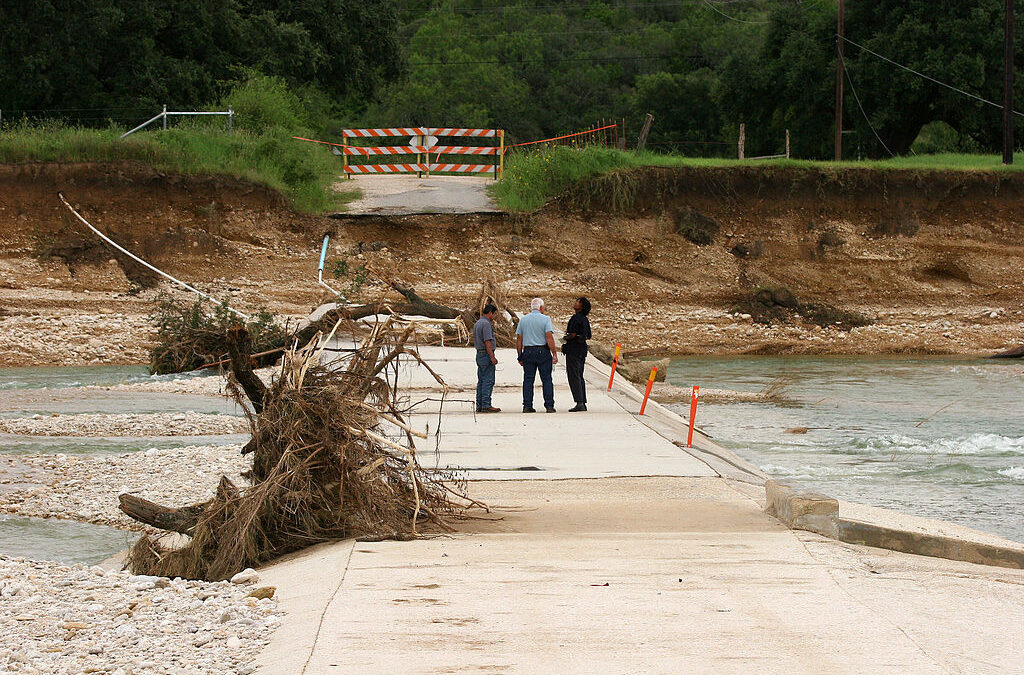Although Texas’ infrastructure ranks better than many other states, it still requires significant state investment to ensure the well-being and security of its residents. That’s according to the American Society of Civil Engineers (ASCE) – the leading organization of civil engineers in the country – which gave Texas a “C” grade in its 161-page 2025 report.
While individual scores for Texas’ aviation and bridge sectors received acceptable “B-grade” scores, the state falters when it comes to water and transportation infrastructure. The sectors that scored the lowest in the report are:
- Drinking water – D+.
- Transit – D+.
- Broadband – D+.
- Dams – D-.
- Levees – D-.
- Wastewater – D-.
The “D-grade” means that these systems are in poor condition and at-risk of catastrophic failure. These are areas of serious concern exhibiting significant deterioration and with many elements approaching the end of their useful life cycle. ASCE based the score on eight criteria:
- Capacity.
- Condition.
- Funding.
- Future need.
- Operation and maintenance.
- Public safety.
- Resilience.
- Innovation.
With the start of the 89th Legislature, Texas lawmakers have an opportunity to invest in critical infrastructure projects and dramatically affect its score in upcoming years. The water sector is already in the spotlight, as State Sen. Charles Perry highlights with a proposed multibillion-dollar plan to overhaul the state’s water project funding. ASCE found that the number of boil water advisories issued in 2023 is more than double those issued in 2020.
Texas received a “C-grade” in energy, hazardous waste, ports, public parks, rail, roads, solid waste and stormwater. While these sectors are in mediocre condition, they aren’t as pressuring a concern as lower-scored areas.

